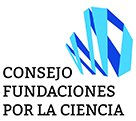Although one generation apart, two renowned female scientists coincide in their optimism for the future. Margarita Salas and Fátima Bosch see it as a matter of time that women start collecting the fruit of seeds sown over the years, that is, leaving behind a situation where women’s preeminent presence in classrooms and research teams fails to translate into promotion to the highest ranks.
Salas is a CSIC’s research teacher at the Severo Ochoa Molecular Biology Center. When she returned from the United Sates in 1967, after a three-year close collaboration with Dr. Severo Ochoa, she had to face a double handicap: a country where “research was a desert”, and a country where female scientists were conspicuously absent. Although she and her husband, Eladio Viñuela, contributed equally to the research of the bacteriophage phi29 virus, Salas had to struggle not to be considered merely as ‘Viñuela’s wife’. So hard was the struggle that, eventually, the couple had to pursue separate professional courses so that she could gain a reputation for herself in the world of science. Today, the patent on the DNA polymerase of this virus –allowing DNA sequencing and amplification in just a few hours vs. the former 3 days– generates 1.2 million euros per year in revenues for the CSIC.
Margarita Salas started her research activities 40 years ago. As she points out, however, we should not forget where we come from and where we are now: in more than 100 years of history, only 11 women –versus 300 men– have won a Nobel prize in the area of Sciences; only 13% of professorships are held by women; and the CSIC, the top research entity in Spain, has never been chaired by a woman. While these data clearly evidence the existence of gender inequality in professional acknowledgment, Salas states convincingly: ‘female researchers will find the place they deserve in the near future’.
Fátima Bosch agrees with Salas’ predictions. From her position of Director of the Center of Animal Biotechnology and Gene Therapy of the Autonomous University of Barcelona, and member of different boards, Bosch considers that a good CV and high-quality research are prioritary in the selection process for a job. “The field of research has the lowest sex-based discrimination. Earnings are similar and all have the same fund-raising capabilities”.
Bosch acknowledges, however, that being a woman is tougher in all environments, including science: “Physiology and maternal instinct are our main drawbacks”. And she adds: “In the world of research, long maternity leaves entail renouncing a highly competitive professional career”. Many female scholars working in Bosch’s team are forced to choose between motherhood and pursuing postdoctoral training. Most choose the first option.
In Bosch’s case, being a mother did not stand in her way. She set off to the United States with her 19-month-old son Ramón and was able to combine maternity with her profession. Importantly though, this would have been impossible without family support and a sound economic situation. Her son is now 18, and not once was she forced to abandon her research on gene therapy for Diabetes Mellitus.
The optimism of these two scientists was not shared by the wide audience that attended these lectures, organized by Aula El País and the Esteve Foundation on 20 November 2006. While open discrimination barely exists today and laws promote gender equality at all levels, the above figures speak for themselves and cast serious doubt on the inexistence of latent discrimination, a lot subtler and surely more difficult to overcome.








